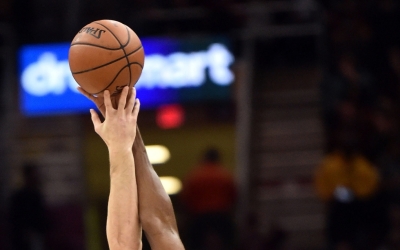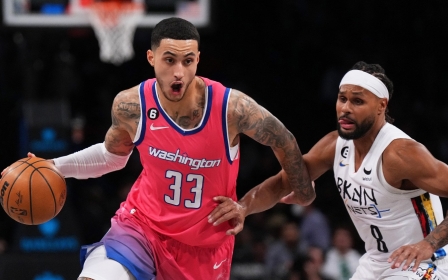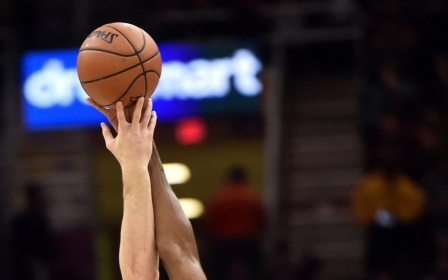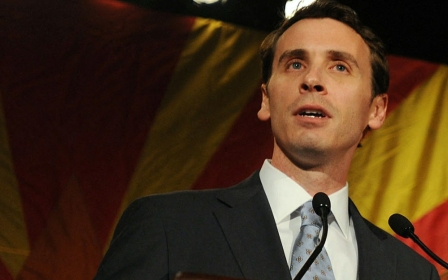Israel-Palestine war: US sports stars ignore Palestinians in pro-Israel posts, face fan backlash
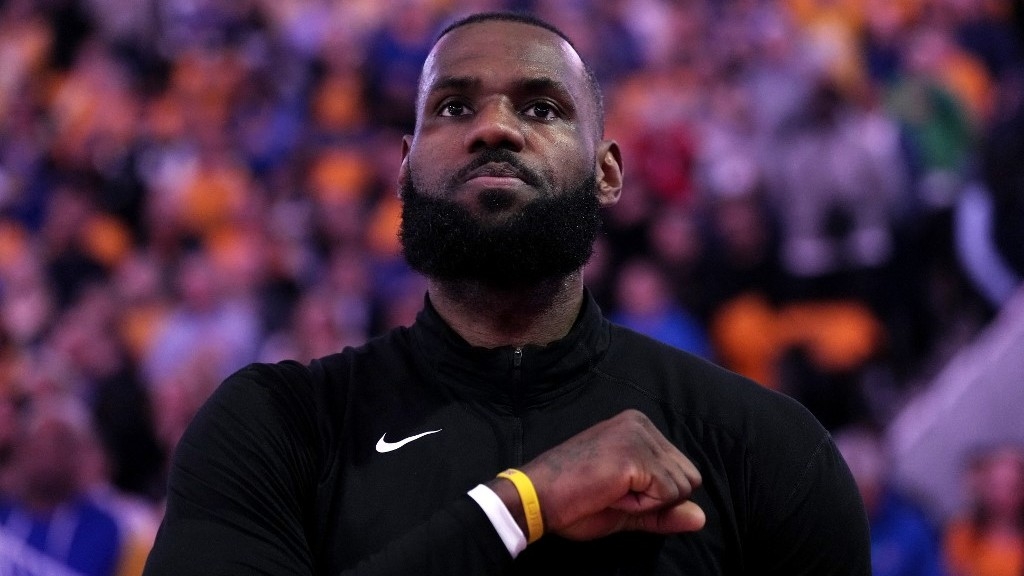
When LeBron James - dubbed one of the greatest basketball players of all time - released a statement on Wednesday about Israel with his business partner, Maverick Carter, fans went berzerk.
“The devastation in Israel is tragic and unacceptable. The murder and violence against innocent people by Hamas is terrorism,” the post written in a joint statement on X, formerly known as Twitter, said.
“The SpringHill Company family sends our deepest condolences to Israel and the Jewish community,” added the statement, referring to the entertainment and production company they own.
People began to comment on the posts on both Instagram and X. “You can’t be serious, man”, “Delete it”, “Free Palestine,” and “I am selling my jerseys”, they wrote. Many referenced a photo of his where he was reading Malcolm X’s autobiography.
“What part in Malcolm’s autobiography told you it’s okay to support oppression?” one said.
While James, who currently plays for the Los Angeles Lakers, does a lot for the National Basketball Association (NBA), his activism off the court is what makes his fans love him even more. He has become a leading voice for social justice, speaking out on both political and social issues.
In 2020, he helped form "More Than a Vote", a non-profit organisation mobilising Black voters and fighting voter suppression. In September, he went to Saudi Arabia for the first time and joined Saudi students and several rising stars from the women's national team on the court.
Follow Middle East Eye's live coverage for the latest on the Israel-Palestine war
During his stay in the kingdom, James held a basbetball clinic at Alazem Sports Academy, facilitated by the Saudi Arabian Basketball Federation.
So when some of his fans saw his post supporting Israel, with no mention of Palestine, emotions were high.
“When I saw that, my heart felt like it actually shattered. What is the point in supporting these people if they can’t see the injustice being done to your people?” Musa Abdelaziz, a fan of James, told Middle East Eye.
“People like him are no longer worth standing behind. You can’t fight for one injustice and then completely ignore the other.”
James isn’t the only US sports player voicing his support for Israel. In the past week, major sports leagues in the US, along with teams and players, have posted statements similar to James’.
On 8 October, the NBA released a short statement saying, “The NBA and NBPA (National Basketball Player’s Association) mourn the horrific loss of life in Israel and condemn these acts of terrorism. We stand with the people of Israel and pray for peace for the entire region.”
Major League Baseball released a similar statement on Monday saying that it's “horrified by the acts of terrorism committed against the people of Israel that took so many lives”.
The New York Jets American football team wrote, “We stand in support with the people of Israel.”
Deni Avdija is the NBA’s only Israeli player. He plays for the Washington Wizards, a team that put out a statement saying, “We stand with the people of Israel.”
In 2018, the NBA was forced to apologise for describing the Palestinian territories as "occupied" on its website, bowing to pressure from Israeli right-wing politicians who objected to the description.
Although Israel's sports minister at the time, Miri Regev, claimed victory for removing the description after she had called Palestine an "imaginary state", contrary to various media reports, "Palestinian territories" was still an option for the location of voters on a poll for picking NBA All-Stars.
Similar to James’ post, the comments under all of the other statements on social media from the various teams and players show disappointment from scores of fans.
"The comments underneath the social media posts have provided a lot of insight into the fan base,” Shireen Ahmed, a Muslim sports journalist and activist told Middle East Eye. “It will be interesting to see how this develops.”
But where does this leave players who do support the Palestinian cause?
On Wednesday, NBA player Kyrie Irving tweeted, “Crimes are being committed against humanity and most of you are silent. Cat got your tongue? Or you’re afraid of actually standing for something real.”
‘Double standard in sports’
“Players on these teams who support Palestinian rights and who oppose the occupation are being put in an awkward position,” Jules Boykoff, a professor at the Pacific University in Oregon, and a former professional football player, told Middle East Eye.
Many of them fear being punished or cancelled.
Earlier this week, Jackson Frank, an NBA blogger who was recently hired by PhillyVoice to write about the Philadelphia 76ers, responded to the Sixers’ post on X, which read, “We stand with the people of Israel.”
'Sports are political through and through'
- Jules Boykoff, professor at Pacific University in Oregon
Frank replied: “This post sucks! Solidarity with Palestine always.”
The next day, Frank was fired.
According to Danyel Reiche, a visiting associate professor at Georgetown University in Qatar, there have always been double standards “when it comes to openly showing support for either Israel or Palestine in the realm of sports”.
He explained that in football, support for Israel by waving Israeli flags is usually accepted. For example, Ajax Amsterdam and Tottenham Hotspurs fans frequently do so.
But there have been instances where support for Palestine was punished. In 2016, the UEFA Champions League fined the Scottish football club Celtic, as fans displayed the Palestinian flag during a match.
UEFA said at the time that Celtic had been charged for displays of an “illicit banner” and added: “This case will be dealt with by the UEFA Control, Ethics and Disciplinary Body.”
Boykoff explained that politics have always been in sports and these statements “should be the death knell of the ridiculous fiction that sports and politics don’t mix”.
“The fact that professional sports teams feel the need to make statements demonstrates that sports are political through and through,” Boykoff said.
“Anyone who tells you otherwise is likely milking the sports cash cow with both hands and wants the status quo to remain so the money continues to gush into their coffers.”
He explained that coming out in “full-throated” support of Israel is different because it may “alienate particular sports fans who are sympathetic to the Palestinian cause”, which is an increasing number, according to recent polls.
A recent Gallup poll shows that Democrats' sympathies in the Middle East have shifted towards Palestinians.
“After a decade in which Democrats have shown increasing affinity toward the Palestinians, their sympathies in the Middle East now lie more with the Palestinians than the Israelis, 49 percent versus 38 percent,” the poll showed.
Ahmed believes that the last few days of trauma and death in Palestine and Israel have created a “ripple effect into sports” with major leagues issuing statements about their sympathies with Israel.
She explained to Middle East Eye that while it is important to articulate public support, historically, there has been little to no compassion offered towards the occupation of Palestine where “children are harassed and imprisoned, and athletes do not have basic mobility rights”.
“One would expect that apartheid should warrant some statements. Particularly when sports hero Nelson Mandela unequivocally showed unwavering support of the struggles for the freedom of Palestinians,” she said.
“We have seen beacons of hope, nuance and humanity in sport - just not from the front offices of these leagues."
Middle East Eye propose une couverture et une analyse indépendantes et incomparables du Moyen-Orient, de l’Afrique du Nord et d’autres régions du monde. Pour en savoir plus sur la reprise de ce contenu et les frais qui s’appliquent, veuillez remplir ce formulaire [en anglais]. Pour en savoir plus sur MEE, cliquez ici [en anglais].


